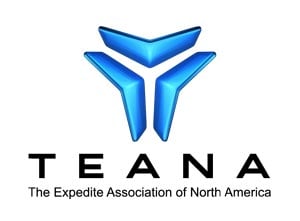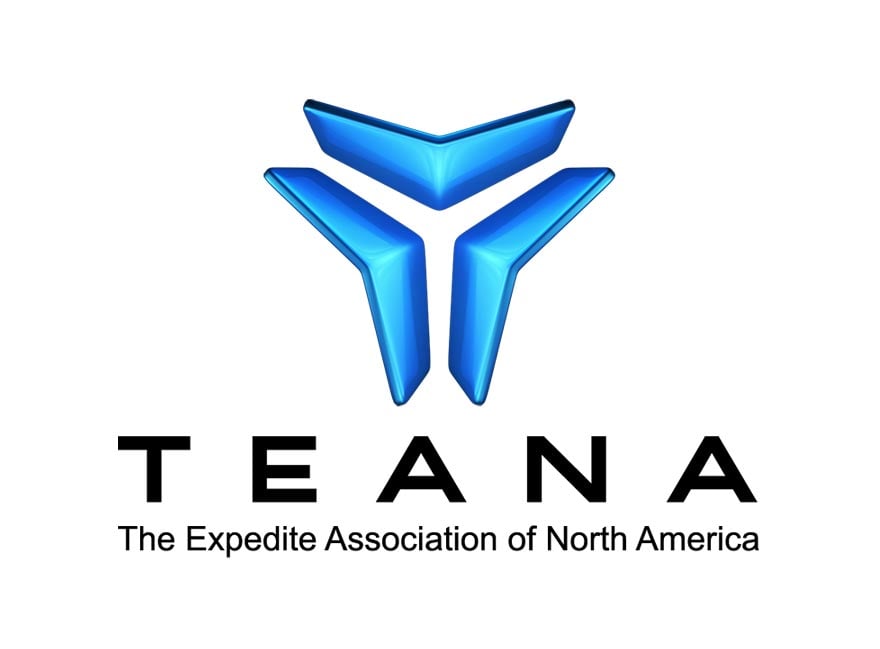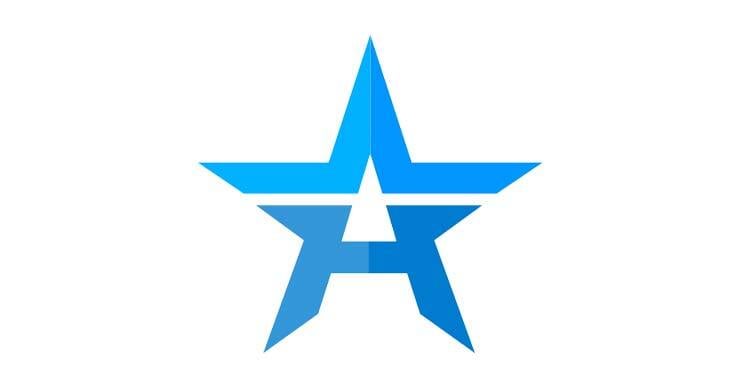
Contents
FMCSA has extended its emergency declaration regarding COVID-19 through May 31. For the latest version and other guidance related to COVID-19 is available at www.fmcsa.dot.gov/COVID-19.
Regulation and Enforcement
- DOL postpones effective date on independent contractor rule
- DOL withdraws opinions sleeper berth pay, independent contractor status
- SBA takes steps to improve PPP access for very small businesses
- FMCSA postpones effective date on rule changing rulemaking procedures
- Wilson Logistics wins exemption on use of permit-holding drivers
Legislation
- House Democrats reintroduce PRO Act
- House, Senate bills would establish an advisory board to promote women in trucking
- House bill would provide HOS relief on perishable agricultural products
Open Issues
Advocacy and Comment
Regulation and Enforcement
DOL postpones effective date on independent contractor rule
As expected, the U.S. Department of Labor’s Wage and Hour Division (WHD) has delayed until May 7 the effective date on a Trump administration final rule regarding independent contractor status under the Fair Labor Standards Act (FSLA) while Biden administration officials review the rule for issues of law, policy, and facts. The rule, which had been set to take effect March 8, is virtually certain to be either scrapped or fundamentally revamped. (For details on the final rule, see Regulatory Update, January 2021.)
In keeping with a regulatory freeze and review ordered on January 20, WHD on February 5 proposed to delay the rule until May 7 pending review and invited comments on that question. WHD received 1,512 comments in response with numerous comments on both sides of the issue, along with comments making procedural objections to the short time frame to comment or to the lead time for delaying the effective date of a final rule. For the Federal Register notice delaying the effective date, visit https://www.federalregister.gov/d/2021-04608. For the regulation and comments on the proposed delay of the effective date, visit https://beta.regulations.gov/docket/WHD-2020-0007.
DOL withdraws opinions sleeper berth pay, independent contractor status
WHD has withdrawn a July 2019 opinion letter (FSLA2019-10) declaring that a truck driver did not have to be compensated for time spent in a truck’s sleeper berth provided that the driver had been relieved of all duties and permitted to sleep without interruption from the employer. WHD also withdrawn a May 2019 opinion letter (FSLA2019-6) addressing whether a service provider for a “virtual marketplace company” is an employee of the company under FSLA or an independent contractor.
In a February 19 notice on the agency’s website, WHD said that opinion letter FSLA2019-10 “was inconsistent with longstanding WHD interpretations regarding the compensability of time spent in a truck's sleeper berth.” WHD said that “several courts have declined to follow the opinion letter, determining, among other things, that it is inconsistent with the Department's regulations; unpersuasive; and not entitled to deference, in part because the letter did not adequately explain WHD's change in position.” The agency said those courts have instead continued to follow the department's longstanding prior position. To the extent that FLSA2019-10 withdrew prior opinion letters on the issue, those letters are reinstated, WHD said.
WHD said in a separate February 19 notice that FSLA2019-6 addresses the same issue under consideration in the final Trump administration rule concerning independent contractor status. Given that the Biden administration has delayed the effective date of that rule while it considers further comments, the opinion letter is withdrawn, WHD said.
The withdrawal of FSLA2019-6 follows a January 26 withdrawal of an opinion letter (FSLA2021-9) related to independent contractor status that was specific to trucking. FSLA2021-9, which WHD had issued on the final full day of the Trump administration, had concluded that a motor carrier’s requirement that tractor-trailer drivers abide by safety-related mandates does not constitute control for the purposes of determining independent contractor status. As it did with FSLA2019-6, WHD a week later ruled that FSLA2021-9 was premature because the final rule on independent contractor status had not taken effect.
For WHD opinion letters and notices on those that are withdrawn, visit https://www.dol.gov/agencies/whd/opinion-letters/search?FLSA.
SBA takes steps to improve PPP access for very small businesses
The White House in February announced several changes in the Paycheck Protection Program (PPP) to improve access to the recently reauthorized program by very small businesses. The steps included designating February 24 through 5 p.m. Eastern on March 9 as a period during which only sole proprietors and businesses with fewer than 20 employees could apply for PPP loans. This exclusive period is intended to ensure that very small businesses have ample time to apply for and receive support before PPP expires on March 31.
SBA also is allowing sole proprietors, independent contractors, and self-employed individuals to receive more financial support by revising the PPP’s funding formula for these categories of applicants. SBA also loosened some prior restrictions to allow access to PPP loans by small business owners who (1) have non-fraud felony convictions; (2) have struggled to make student loan payments; and (3) are not citizens but are lawful U.S. residents.
For more information, visit https://www.sba.gov/funding-programs/loans/coronavirus-relief-options/paycheck-protection-program.
FMCSA postpones effective date on rule changing rulemaking procedures
FMCSA postpones effective date on rule changing rulemaking procedures that was slated to take effect March 1. The effective date is now March 21, allowing time for the Biden administration to review the rule and consider any questions of fact, law, or policy that it might raise. For the Federal Register notice delaying the effective date, visit https://www.federalregister.gov/d/2021-04110. For the Federal Register notice on the rule itself https://www.federalregister.gov/d/2020-27854.
Wilson Logistics wins exemption on use of permit-holding drivers
FMCSA has granted an exemption to Wilson Logistics to allow drivers who have hold a commercial learner’s permit (CLP) and who have passed the commercial driver’s license (CDL) skills test but who have yet to receive the CDL document to drive even if the accompanying CDL holder is not seated in the passenger seat. FMCSA has previously granted similar exemptions to C.R. England and New Prime, Inc. For the Federal Register notice, visit https://www.federalregister.gov/d/2021-03685.
Legislation
House Democrats reintroduce PRO Act
Rep. Bobby Scott (D-Virginia) and 195 original co-sponsors on February 4 introduced comprehensive pro-labor legislation (H.R. 842) that includes language mandating a federal ABC test for worker classification similar to that in California’s AB 5. The legislation – called the Protecting the Right to Organize Act, or PRO Act – passed the House in the 116th Congress but was never considered by the Republican-controlled Senate.
Section 101(b) of the PRO Act includes a definition of an employee stating that an individual performing any service shall be considered an employee and not an independent contractor unless:
A. the individual is free from control and direction in connection with the performance of the service, both under the contract for the performance of service and in fact;
B. the service is performed outside the usual course of the business of the employer; and
C. the individual is customarily engaged in an independently established trade, occupation, profession, or business of the same nature as that involved in the service performed.”
In addition to imposing a federal ABC test, the PRO Act would explicitly declare misclassification of workers a violation of the National Labor Relations Act (NLRA). As such, the legislation would overturn the National Labor Relations Board’s August 29, 2019 decision in Velox Express, which held that misclassification is not a violation of the NLRA.
The PRO Act also would establish a host of other pro-labor measures, including prohibiting employers from permanently replacing striking workers, prohibiting offensive lockouts, removing limitations on secondary picketing and strikes, and barring employers from holding mandatory meetings to persuade employees not to unionize.
Since introduction of H.R. 842, another 16 Democrats have co-sponsored the bill. Meanwhile, Sen. Patty Murray (D-Washington), the lead sponsor of the Senate version of the PRO Act in the last Congress, also announced plans on February 4 to reintroduce the bill, but the legislation apparently has not been formally introduced yet. For more on the House bill, visit https://www.congress.gov/bill/117th-congress/house-bill/842.
House, Senate bills would establish an advisory board to promote women in trucking
Legislation (H.R. 1341, S. 469) aimed at increasing participation of women in various aspects of the trucking industry was introduced in both the House and Senate in February. Rep. Mike Gallagher (R-Wisconsin) and Sen. Jerry Moran (R-Kansas), lead sponsors of the legislation, had introduced the bills in the 116th Congress, but they did not advance.
The bills would require FMCSA to establish and facilitate an advisory board to promote organizations and programs that provide education, training, mentorship, or outreach to women in the trucking industry and that recruit women into the trucking industry. The board would report to FMCSA within 18 months of the legislation’s enactment, and FMCSA would report to Congress outlining actions taken to adopt the strategies recommended by the board or explaining the reasons the agency did not adopt the strategies. For more information on the bills, visit https://www.congress.gov/bill/117th-congress/house-bill/1341 and https://www.congress.gov/bill/117th-congress/senate-bill/469.
House bill would provide HOS relief on perishable agricultural products
Rep. W. Gregory Steube (R-Florida) introduced legislation (H.R. 358) that would require the Federal Motor Carrier Safety Administration (FMCSA) to exempt from certain provisions of the hours-of-service (HOS) rules drivers and carriers “transporting any agricultural, horticultural, or floricultural commodity.” The bill further defines the category as including “both fresh and processed products, as well as sod and other agricultural products sensitive to temperature and climate and at the risk of perishing in transit.”
Under the bill, in those situations (1) loading and unloading of commercial motor vehicles would be excluded from on-duty time requirements; (2) the 30-minute rest break would not be mandatory; and (3) carriers and drivers would not be limited by the maximum on-duty time if they are within 150 miles of their scheduled delivery point. For more information on the bill, visit https://www.congress.gov/bill/117th-congress/house-bill/358.
Open Issues
Comment period still open on proposed alternative vision standard
FMCSA’s proposed rule to adopt an alternative vision standard for physical qualification to replace the current vision exemption remains open for comment until March 15. Although the rule was proposed late in the Trump administration, FMCSA has yet to take any action halting or delaying the comment date. The Federal Register notice is available at https://www.federalregister.gov/d/2020-28848.
Advocacy and Comment
This month’s Regulatory and Legislative Update confirms earlier predictions that the owner operator/independent contractor model is in the crosshairs of proposed future administrative and congressional action. As predicted, the favorable “Economic Realities Test” of the former Department of Labor was stayed by the new Administration. Also as noted above, the new DOL is already issuing new opinions and taking actions which could adversely affect established practices. Finally, the prolific use of Executive Orders by the new Administration has been noted in both the New York Times and the Wall Street Journal, as has evidence of the new Administration’s support for increased unionization.
On the legislative side, the PRO Act sets up an across-industry employee classification test similar to California’s AB-5 which the owner operator/ independent contractor model as presently applied could not meet. Missing from the debate at both the legislative and DOL levels is the uniqueness and importance of the owner operator model to the trucking industry and to the blue-collar small businessmen for whom independent contractor status under the truth-in-leasing regulations is an opportunity and a choice.
Clearly, the independent contractor treatment of small businesspersons that lease equipment with drivers to carriers under the Federal Leasing Regulations (49 C.F.R. 376) has been an established rule of commerce for decades. This model is the backbone of the long-haul truckload segment, intermodal drayage and other trucking niches.
Yet the case is left to be made that the owner operator model is a unique and an important exception to any new or different rule of general application in determining independent contractor status. The model is based upon past precedent and grounded in Federal Regulations which provide opportunities and choices to blue collar entrepreneurs while ensuring protections against abuses offered through the truth-in-leasing regulations and Federal self-help statutes.
On February 24, 10 trade associations filed comments with the new Department of Labor to make the case for special treatment and a carve-out for the owner operator model consistent with past precedent. See https://www.regulations.gov/comment/WHD-2020-0007-3105. Readers of this monthly update are urged to read these comments and participate in efforts to save this important model.
Our Process lorem ipsum dolor sit amet, consectetur adipiscing elit. Nunc vulputate libero et velit interdum, ac aliquet odio mattis.
Value prop lorem ipsum
Ut posuere hendrerit nisl metus neque. Facilisis quis adipiscing a molestie. Tempor turpis tincidunt nulla diam in. Nec etiam ut neque placerat mauris nulla. Semper hendrerit at urna orci in faucibus sit lacus. Tincidunt fermentum consequat.
SEE OTHER CITIES WE SERVICE IN THIS STATE
Value prop lorem ipsum
Ut posuere hendrerit nisl metus neque. Facilisis quis adipiscing a molestie. Tempor turpis tincidunt nulla diam in. Nec etiam ut neque placerat mauris nulla. Semper hendrerit at urna orci in faucibus sit lacus. Tincidunt fermentum consequat.
SEE OTHER CITIES WE SERVICE IN THIS STATE
Related Blog Posts

Regulatory and Legislative Update - April 2021
Contents FMCSA has extended its emergency declaration regarding COVID-19 through May 31. For the latest version and other guidance related to COVID-19 is available at www.fmcsa.dot.gov/COVID-19. Regulation and Enforcement DOL proposes to withdraw rule on worker classification DOT rescinds Trump administration’s changes on rulemakings, guidance CVSA to hold enforcement events in May and July Bus operator seeks exemption from full clearinghouse...

Regulatory and Legislative Update - August 2022
Contents FMCSA has extended its emergency declaration regarding COVID-19 through August 31, 2022. For the latest version and other guidance related to COVID-19 is available at www.fmcsa.dot.gov/COVID-19. Note that use of the declaration now requires monthly reporting by carriers. Courts Appeals court upholds the latest changes to HOS rules Appeals court overturns ruling for Schneider in classification case Regulation and Enforcement Registration...

Regulatory and Legislative Update - January 2023
Contents Regulation and Enforcement FMCSA proposes changes in broker and forwarder requirements Exemption rejected for including hair testing results into drug clearinghouse FMCSA implements 10-year refresher training and certification for medical examiners DOT modal agencies adjust civil penalties for inflation FMCSA to begin work on vehicle crash causation study Stevens Transport receives CDL-related exemption FMCSA grants two driver training...

Regulatory and Legislative Update - March 2022
Contents FMCSA has extended its emergency declaration regarding COVID-19 through February 28. For the latest version and other guidance related to COVID-19 is available at www.fmcsa.dot.gov/COVID-19. Note that use of the declaration now requires monthly reporting by carriers. Regulation and Enforcement FMCSA removes x-ray exam from definition of ‘medical treatment’ FMCSA drops mandate that drivers disclose traffic violations to employers FMCSA...

Regulatory and Legislative Update - January 2025
Contents Regulation and Enforcement FMCSA expands crash preventability review criteria FMCSA to highlight upcoming SMS changes in January 16 webinar Compliance date pushed back for certain provisions of broker/forwarder rule Trump labor pick, port dispute stance raise questions about labor policy FMCSA proposes to waive hazmat endorsements for certain limited operations Company denied exemption for limited interstate driving by younger drivers...

Regulatory and Legislative Update - November 2022
Contents Regulation and Enforcement DOL proposes to reverse Trump-era rule on worker classification under FLSA FMCSA’s COVID-19 emergency declaration ends FMCSA rejects SBTC exemption related to the language skills requirement School bus group receives CDL testing exemption regarding engine compartments FMCSA renews UPS exemption from certain ELD requirements FMCSA renews ELD exemption for motion picture-related drivers Legislation House bill...

Regulatory and Legislative Update - February 2022
Contents FMCSA has extended its emergency declaration regarding COVID-19 through February 28. For the latest version and other guidance related to COVID-19 is available at www.fmcsa.dot.gov/COVID-19. Note that use of the declaration now requires monthly reporting by carriers. Regulation and Enforcement Safety fitness procedures apparently are next on FMCSA’s regulatory agenda FMCSA adopts new vision standards for commercial drivers FMCSA...

Regulatory and Legislative Update - July 2022
Contents FMCSA has extended its emergency declaration regarding COVID-19 through August 31, 2022. For the latest version and other guidance related to COVID-19 is available at www.fmcsa.dot.gov/COVID-19. Note that use of the declaration now requires monthly reporting by carriers. Courts Leased owner-operator model outlawed in California as Supreme Court denies cert Supreme Court refuses to consider preemption of broker negligent selection...

Regulatory and Legislative Update - December 2021
Contents FMCSA has extended its emergency declaration regarding COVID-19 through February 28. For the latest version and other guidance related to COVID-19 is available at www.fmcsa.dot.gov/COVID-19. Note that use of the declaration now requires monthly reporting by carriers. Legislation House passes ocean shipping reform bill House passes Build Back Better Act House bill would federalize major crash lawsuits, criminalize staging of crashes...

Regulatory and Legislative Update - August 2023
Contents Regulation and Enforcement FMCSA to revisit state regulation of drivers’ rest breaks Three devices removed from list of registered ELDs FMCSA updates technical guidance on ELDs Brian Stansbury appointed FMCSA’s chief counsel FMCSA rejects driver’s requested exemption from multiple HOS requirements Legislation Senate DOT funding bill would block younger driver program mandates Senate bill would establish a carrier selection standard...

Regulatory and Legislative Update - June 2020
Contents Note: FMCSA’s emergency declaration related to COVID-19 currently runs through July 14, but the latest extension curtails the coverage of the relief. For latest version, visit https://www.fmcsa.dot.gov/COVID-19. Legislation Congress extends PPP through August 8 House passes infrastructure bill with major motor carrier provisions House bill would establish carrier selection standard House bill would expand HOS exemption for agriculture...

Regulatory and Legislative Update - July 2020
Contents Note: FMCSA’s emergency declaration related to COVID-19 currently runs through July 14, but the latest extension curtails the coverage of the relief. For latest version, visit https://www.fmcsa.dot.gov/COVID-19. Legislation Congress extends PPP through August 8 House passes infrastructure bill with major motor carrier provisions House bill would establish carrier selection standard House bill would expand HOS exemption for agriculture...
WHAT IS HOT SHOT TRUCKING? AKA HOTSHOT TRUCKING
Modern business is all about strict timelines. Whether your field is manufacturing, extraction, retail, or research and development, your operations are bound to rely on activities that operate in tandem. The most minor of supply shortages can throw these activities off, potentially costing you thousands of dollars just for a few hours' delay. Success thus hinges on your ability to right the ship as quickly as possible after a supply shortage arises.
Industries We Serve
Modern day hot shot trucking provides the speed and exclusivity you need to meet the most demanding and time-sensitive shipping requirements. We use every resource, avenue, and channel available to ship your freight by ground or air. Designed specifically to address supply and distribution problems that arise without warning, hotshot trucking tactics involve coordinating a network of carriers in a variety of locations. By calling on the vehicles closest to your supply or distribution points, hotshot brokers can fill any sudden gaps in your supply network almost as soon as they happen. This minimizes the disruption to your business and allows you to quickly return to ordinary operations, weathering the storm without skipping a beat.
Automotive
The automotive supply chain already has significant challenges. Don’t let malfunctioning equipment stop the production line. Step on the gas with HotShotTrucking.com’s suite of services that will get you back in the fast lane. With HotShotTrucking.com, companies are devising shipping strategies to swiftly deliver critical parts and equipment — whether it's ground expedite service with sprinter vans, box trucks and 53-foot tractor trailers or air freight and air cargo.
Aviation & Aerospace
Every moment a commercial airliner sits on the ground, it costs an airline money. Expedited freight services by HotShotTrucking.com can get you back in the air with prompt delivery of parts and equipment throughout North America. We are equipped with the expertise to navigate the complexities of shipping jet engines and other types of loads, and our network of hot shot drivers has extensive experience transporting aviation assets.
Construction
One shipping delay can snowball and cause delays throughout your entire project. You need an experienced 3PL provider who understands the construction industry and has the logistical reach to deliver your freight on time, anywhere. That 3PL partner is HotShotTrucking.com. Whether in the air or on the ground via truck and trailer, we can connect companies to expedited freight services for the prompt delivery of parts and equipment throughout North America.
Mining & Metals
From cranes to chemicals to excavators to conveyor belts, HotShotTrucking.com has the experience and industry know-how required for shipping sensitive, oversized, and hazardous equipment. Third-party hot shot trucking and logistics providers such as HotShotTrucking.com specialize in devising and implementing innovative shipping solutions, ensuring mines can swiftly return to operation. We’ll pick up your shipment, deliver it to the airport and receive it at the other end – providing hand-carried service as necessary or required.
Manufacturing
Every moment a manufacturing facility or factory sits idle costs a company money because of the high costs involved. With many manufacturers building to only just-in-time production rates, any disruption threatens parts and vehicle inventories. This is where the speed and expertise of freight services from HotShotTrucking.com can make a difference throughout the entire manufacturing supply chain. We do all the logistical legwork to find the optimal solution for your job, whether it's an exclusive air charter or expedited ground shipping.
Telecommunications
From servers to cell towers, information, voice, and data must flow to keep businesses, production, and the public online and connected. When equipment goes dark, depend on HotShotTrucking.com to get your systems flashing green again. This is where the speed and experience of trucking and freight services from HotShotTrucking.com can help. Our hot shot truck network excels at the prompt delivery of parts and equipment throughout North America.
Oil & Gas
The oil and gas industry faces challenging conditions in offshore and onshore oil rigs, often in remote locations with limited infrastructure. Don’t let oil pumps or pipelines sit idle waiting for equipment. By having the right plans, parts, people, and logistics partner like HotShotTrucking.com, you can effectively mitigate plant or pump downtime, unscheduled disruptions, and equipment failures.
Cost of Urgent Shipping
Which of our specialized shipping services best fits your needs?
Blog and Resource Center
How AirFreight.com Solved a PGA Tour Shipping Emergency
Learn how AirFreight.com located a lost shipment and helped save the PGA Golf Tour.
How AirFreight.com Saved The Farm By Solving A Major Shipping Delay
Learn how we saved a Montana-based artisanal farm thousands of dollars by expediting a shipment of perishable goods.
Expedited Shipping Vendor Comparison
We’ve done the research for you. This vendor comparison sheet breaks down how AirFreight.com stacks up against the competition.

talk to an expeditor now
Get a Quote in Minutes for Your Time-Critical Freight Needs
GET A QUOTE
